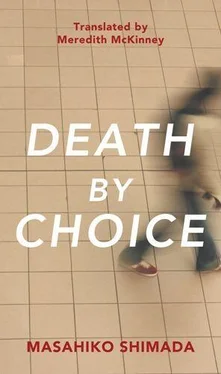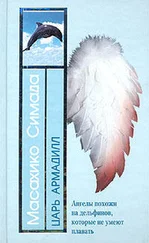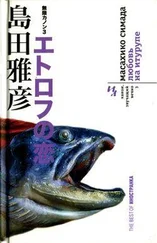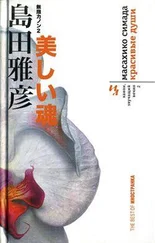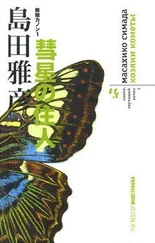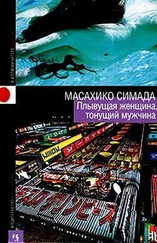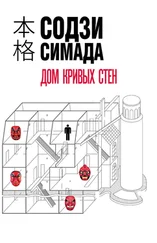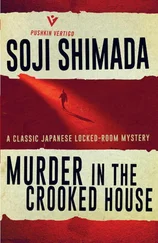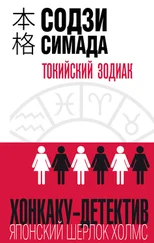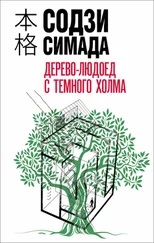Not only his stomach but his head was wracked with pain, and now the pains cycled more and more swiftly through him. Almost like the pangs of childbirth. There was pain in the birth of new life and the relinquishing of old life alike.
Even when the agony weakened a little, he now knew to anticipate the cycle, and was braced against its next onslaught. Then, just a little later than he’d anticipated, fresh pain would surge through him.
Today, it took twice as long to make his way down to drink water and return. He had all the time in the world, but how much longer would his strength hold? When all that was left was his bones, time would still flow gently along in the stream and forest.
His cheeks were sunken, his trousers were loose on his frame. The loss of flesh meant that the cold penetrated more fiercely. He sought out the sunlight as much as he could, and lay curled in it.
It was terrible not to sleep at night. The darkness and the silence doubled his suffering. The only tiny salvation was in the soft burr of the crickets. It sounded in his ears like music, like song. Then a cicada began, its rhythmic rasping call seeming to say “eat and sleep, eat and sleep,” or “life or death, life or death.”
For the insects, what lay here was a huge and marvellous lump of potential prey. They must be gathering round to check him out. After all, it would be their job to return him to the earth.
Rain fell. He settled his head so that his open mouth could catch the drops, and lay there for a while. This allowed him to forego the exhausting business of making his way down to the stream and back.
The rain brought a faint scent of herbs. Forest tea, he thought as he drank. He feverishly counted the drops that entered his mouth – a total of 5,411.
It must be poor circulation that made him feel so cold. But his body was frail now, and walking was a huge effort. His legs in particular felt terribly weak. Once he could no longer go for water, death would no doubt come quite swiftly.
He began to suffer fierce palpitations. His heart was racing uncontrollably, pumping blood around the body, desperately trying to keep his body temperature up. Kita was doing his best to die, but his heart was bravely trying to keep him alive. This pain that flowed into every corner of his body must be his organs and nerves rising up in protest at his death. But he was by now less than half alive.
His skin was parched, and flaking off in raised scales. Smelly pus oozed from the wound in his forehead.
Hey, worms, be glad and rejoice! You’ll soon be served a lovely big lump of meat jerky.
The pebbles he piled up one by one even on the days he didn’t go for a drink had now reached more than twenty. By now, his body no longer responded to orders. And yet he wanted water.
The torment went on, in a blur of day and night. He managed to piss a tiny trickle of urine once a day, but each time with more pain.
He thought perhaps an escape into the world of dreams would lessen the suffering a little, but the dreams were never pleasant. He was tired of dreaming. He wanted to become a figure in someone else’s dream for a change. That way he’d feel neither pain nor cold, even if he were beaten, abused, even killed.
This was horrible. All he was doing was not eating, so why should he be suffering such pain and cold?
Christ underwent a fast of forty days in the wilderness in his thirtieth year. Buddha attained enlightenment after a forty-day fast, and Moses was given the Ten Commandments after fasting forty days. So all the great religious founders had undergone this horrible suffering. They must have had exceptional powers of endurance. More than likely, though, these saints were either extreme masochists, or people with an exceptional physical make-up.
He hadn’t had the slightest intention of getting pally with the saints, or of understanding how they’d felt. He’d only wanted to die a light-hearted death. If he’d realized what a cruel ordeal those men had been through, he’d have bowed in heartfelt reverence before both God and the Buddha.
The saintly hermits of old would have tasted the extremes of loneliness, hallucination, and suffering as they underwent their experiences of life and death, light and dark, good and evil, freedom and restraint. Those fierce oppositions would have registered along their nerves as aching head, aching stomach, cold, nausea, paralysis, dream, hallucination, and fear. Half dead, their thoughts came with the half-life left to them. They saw no one, ate nothing, made no attempt to escape or hide; they relinquished the self, and existed simply in this in-between state. The unbearable pain of fasting would have driven them again and again to almost yield to the temptation to flee to either life or death. Life up till now wasn’t all that bad, they’d have thought. Now that I’ve withstood all this suffering, the old life will feel wonderfully easy after this. They may have felt that it was better after all to resign yourself to the constraints of normal life rather than endure this brutal freedom. Or maybe they felt more inclined to give up trying to think with the life that remained to them, and instead simply hasten their death.
Yet they resisted. They stood firm in this limbo state, learned the art of enduring the cruel extremes of freedom, and in the end walked back among the people again. No doubt what awaited them there were misunderstandings and oppression by the authorities. No one would be able to think like them, or have the strength to endure as they had. They had nothing more to fear. It was the people and the authorities that now feared them.
And he had mistakenly entered that same limbo, where misunderstanding, persuasion, discrimination, and persecution meant nothing.
Having understood so late in the day, Kita felt the urge to pray to something. He had defiled holy ground, and he feared that still crueller torments awaited him. And now, for the first time since chasing himself into this forest, he felt that it would be better to escape.
This was the worst day so far. Pain stabbed at him constantly, and he was assailed by a nausea so strong it threatened to turn his guts inside out. Twisting his now useless body about he struggled to endure, lost consciousness when the pain became too great, regained it again to continue his suffering.
He had forfeited all chance of escape now. In a few more days he’d surely be dead.
Rain fell, and for the first time in three days water touched his mouth. The clouds were bringing water for the dying.
If he had a phone handy, he’d like to get onto the god of death and say Quick, kill me! I’m waiting!
He wasn’t fasting. No, it’s just that there wasn’t any food, nor any appetite. The thought made him want to laugh. Food has escaped me. And there’s no way I can escape.
He no longer knew whether he felt pain, or cold, or indeed anything.
He’d grown very thin and light. Shrivelled as a slice of dried squid. Put him over a flame and he’d curl.
Water, he wanted water. Once the messenger of death came for him, he’d be taken to the River Styx. Then he could drink his fill.
Rain. He’d thought he’d be dead by morning, but there was still some life in him after all. Lots of rain today. He’d drunk a bit too much. Pissing was painful. Once he’d managed to piss, his body was attacked by sharp pains like being packed in needles of ice. Maybe he’d die of cold before he died of starvation.
If only the forest would burst into flames, he prayed. It would release him from this cold, and give him a cremation.
A beautiful day. Same pain, but less excruciating if he stopped focusing on it. Come what may, he’d try going for water today he decided. His legs had completely given in by now, but he could roll down the slope, and crawling was still possible. But he wouldn’t be able to get back to the cave, would he? He didn’t have the strength to make himself a new bed sheltered from the rain and wind. Well, he was nine tenths dead by now, so what did it matter? He could choose to stay in this coffin till he shrivelled to a mummy, or return to earth somewhere out there among the dwarf bamboo, or set off to meet the River Styx halfway – at any rate, he’d die faster by moving.
Читать дальше
